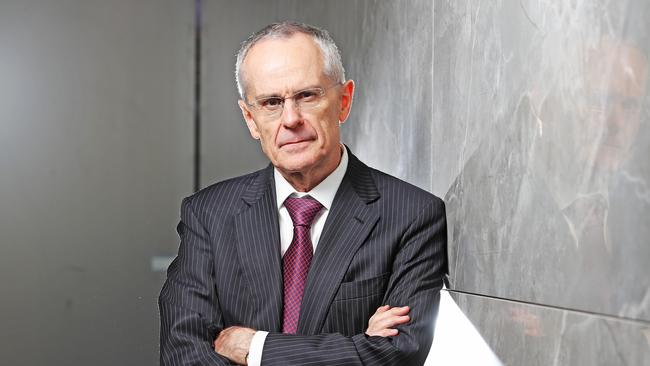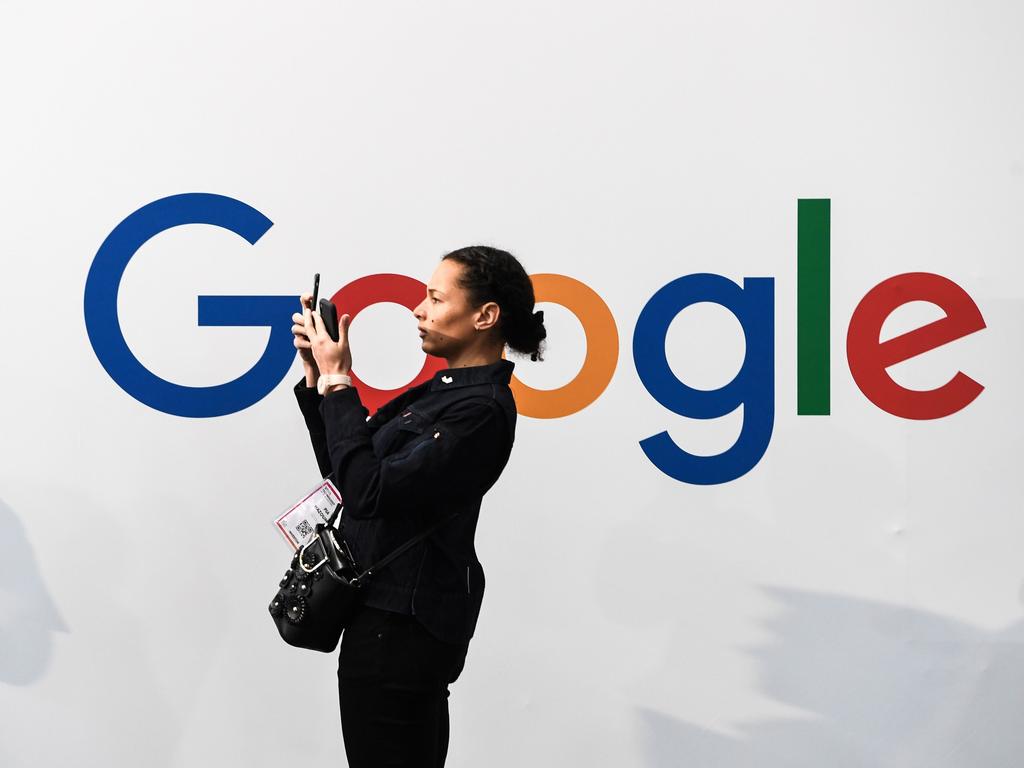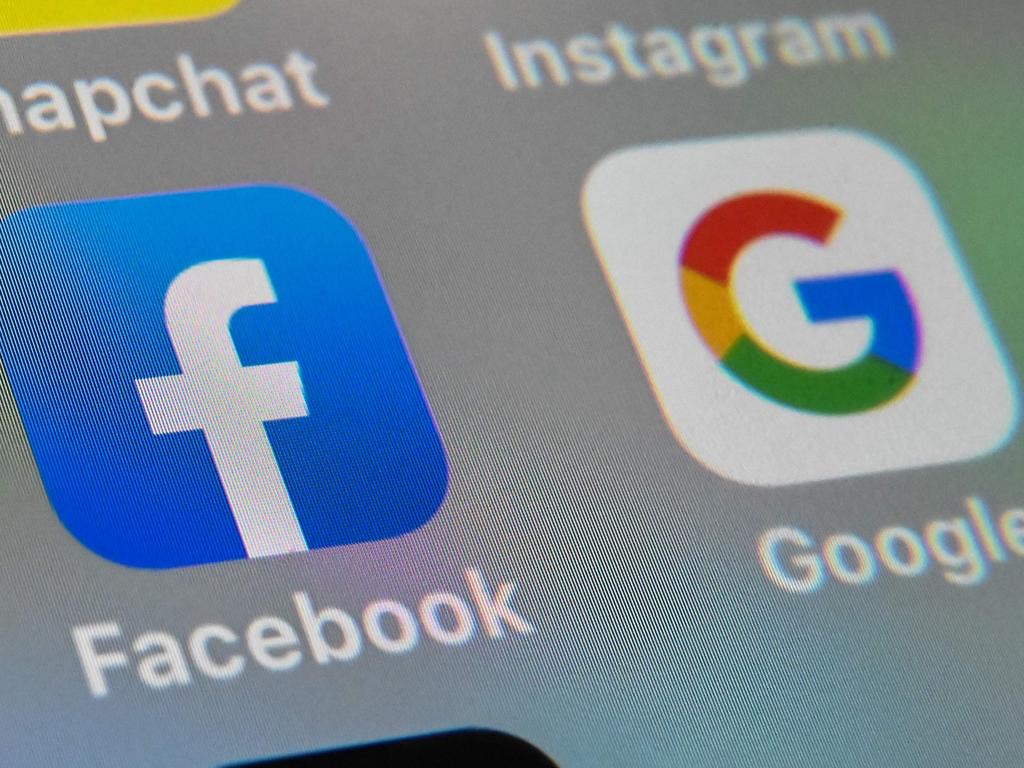Tech giant code: ACCC, publishers should be careful what they wish for

Anything could happen, and it should be a wonderful show as Google and Facebook, Instagram and Twitter, get onto the park with News Corporation, Nine Entertainment, and the hordes of other publishers that make more than $150,000 in revenue, with the ACCC’s Rod Sims as referee, whistle poised.
The least likely outcome, it seems to me, is that a new source of revenue flows from the bulging, reluctant pockets of Sergey Brin, Larry Page and Mark Zuckerberg sufficient to restore the fortunes of the nation’s penurious news purveyors.
Perhaps a few pennies will find their way into the bowls of the publishers sitting cross-legged on the footpath, but that’s all.
In fact if they’re not careful some money might flow the other way. We are about to discover who needs who more. Do Google and Facebook need the publishers more than the publishers need Google and Facebook?
In the ACCC’s new code, the arbitration is one-way: the draft bill says that it “sets out an amount (the remuneration amount) for remunerating the registered news business for the making available of the registered news business’ covered news content by the digital platform service ...”.
So the arbitration panel can’t rule that the news publishers have to pay the digital platforms.
But I wouldn’t mind betting that if Google and Facebook declared that because of the ACCC’s impertinence their platforms were no longer available to Australia’s news publishers, money would magically appear to change their minds.
What’s more, half the stories in the mainstream media these days seem to come from Facebook - for example, the one the other day about “Eve Black” (not her real name apparently) who filmed herself laughing about getting through a coronavirus border checkpoint and put it on Facebook, and one of her “friends” sent it to the Herald Sun and then all the other news websites and TV news bulletins picked it up, and it was everyone’s most talked about and clicked-on yarn that day. And it was a story that kept on giving, since the woman was tracked down and arrested by the cops, so days of clicks and gossip followed.
And I dare say that the serious journalist’s most important research tools are Google and Wikipedia, about which no more needs to be said.

So news publishers should be careful what they wish for. As that great philosopher of negotiation Donald Trump wrote in The Art of the Deal: “The worst thing you can possibly do in a deal is seem desperate to make it. That makes the other guy smell blood, and then you’re dead.”
Many of Australia’s news publishers are bleeding, and as a result many employ paywalls and charge subscriptions, or even beg for money, because digital advertising alone will not fund a newsroom of any size.
The subscription business model mainly involves using Google and Facebook to generate leads and convert them into paying customers. Could they get leads from elsewhere? Of course, but they would cost a lot more.
Subscription publishing is basically a game of arithmetic: you pay dollars for web traffic (leads) – usually to social media – then try to convert a percentage of that traffic to free trials and then convert a percentage of the free trials to subscriptions. Those three cascading numbers and percentages tell you cost of acquisition (COA) which needs to be less than the lifetime value (LV) of the subscriber, which in turn is the annual subscription price times the average life of a subscription. As Charles Dickens might have said: COA less than LV, result happiness; LV less than COA, result misery.
But the ACCC code is focused on advertising revenue lost to Google and Facebook, not subscriptions, and that is a little more complicated than it seems.
For a start, it will only work if the news publishers are united, and negotiate as a cartel – which, by the way, is specifically allowed in the ACCC’s draft bill, presumably for that reason. If one or more publishers break ranks and agree not to ask for money, and Google and Facebook ban the others who do demand money for their content, they will die quick brutal deaths.
In fact it is impossible to see a non-leaky cartel forming: the profits from an Australian Google news monopoly would be too enticing, so someone would always break.
Second, the publishers’ problem is not so much the fact that Google and Facebook hoover up all the advertising revenue, although they do, but that the explosion of inventory has driven down the price of ads to prices that only make sense for them.
And there is so much inventory because Google and Facebook don’t create it, everyone in the world does. They don’t even check it – they refuse to, even if the stuff they’re publishing is lies designed to rig an election.
Something needs to be done about it all right, but what? Setting up a mandatory negotiating code with arbitration after three months?
There is a lot more wrong with social media than the fact that it starves journalism of revenue, but perhaps that’s as good a place to start as any.
It won’t work, of course, but it would be good if it did.
Alan Kohler is Editor in Chief of Eureka Report






The world is agog at the Australian Competition and Consumer Commission’s attempt to wrestle the internet goliaths, Google and Facebook, into paying for news content, otherwise known as the “mandatory bargaining code for responsible digital platforms and registered news organisations”.